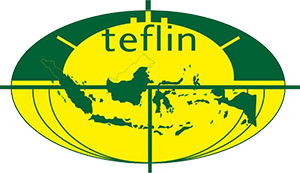Journal of English Teaching and Learning Issues (JETLI) is a double-blind peer-reviewed journal. Submissions that meet the requirements of the journal will be processed for blind reviews by a minimum of two experienced reviewers in the field of English language teaching and learning. The response based on the reviews and comments received from the reviewer will be the consideration for the editor (Editorial Board) to determine whether an article can be published (accepted), published if revised, or discarded (rejected). In addition, Editors will have the option of seeking additional reviews when needed. The authors will be advised when the Editors decide further review is needed. Editors will also decide whether each submission reports well-conducted research with conclusions supported by the data presented in the paper. Assessments of priority will not be a factor in decision-making, but all papers must make an incremental or novel addition to the literature.
The author and reviewer should consider these criteria in terms of fulfilling the standard of a manuscript being published in JETLI.
- The title is appropriate, concise, and clear.
- The abstract well represents the article.
- The writer’s aims are clear and well justified.
- The writer uses appropriate references.
- The problem/issue/purpose of the study is clear and well-justified with contextualization within the wider web of relevant studies.
- Research methodology and design suit the purpose(s).
- Research procedures are clearly described.
- Research findings are well presented.
- Discussion well explains the findings and logically links the findings to theories and/ or practices; alternative perspectives are sought for (where applicable).
- Conclusions are well-drawn.
Peer Review Process
- All research articles are reviewed by at least two suitably qualified experts.
- All publication decisions are made by the journal's Editors-in-Chief on the basis of the reviews provided
- Members of the international Editorial Boards lend insight, advice, and guidance to the Editors-in-Chief generally and assist decision making on specific submissions
- Managing Editors and Editorial Assistants provide the administrative support that allows JETLI to maintain the integrity of a blind peer review while delivering rapid turnaround and maximum efficiency to authors, reviewers, and editors alike.
- JETLI additionally benefits through the manuscript referral process from the high-quality peer review conducted by established journals.
- The period peer review, editing, copyediting, and proofreading process usually takes 3-12 months.
Peer Review of Novel Submissions:
Editors will decide whether each submission reports well-conducted research with conclusions supported by the data presented in the paper. Assessments of priority will not be a factor in decision-making, but all papers must make an incremental or novel addition to the literature.







